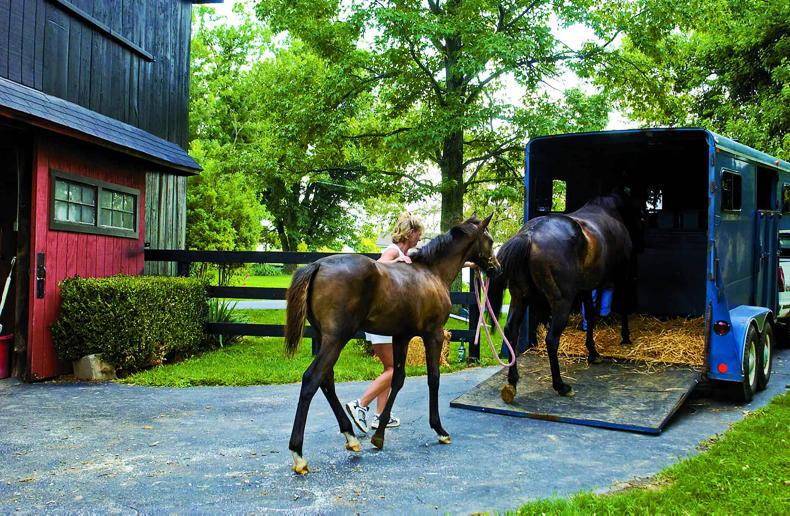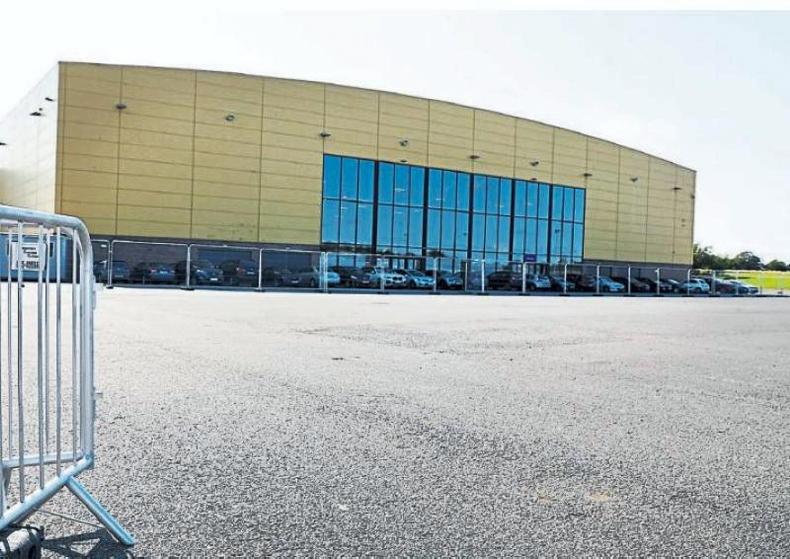WITHOUT question the past four years of all our lives have been some of the most turbulent; however, nothing compares to the horrors of Russia’s illegal war in Ukraine. Cruelty is so often combatted with enormous kindness and generosity, and when the transport community were called to arms, the industry took to their trucks to help supply aid to our neighbours.
The community spirit, filling lorries full of humanitarian aid, was not just about helping; it was about rejecting the injustices of war. As lorries swept east, surely President Putin in those early days must have known history was already writing his fate?
Heart-breaking
While the transport community were rushing to re-supply aid going into Ukraine, an even more concerning humanitarian crisis was developing on the Polish border as civilians were fleeing and often leaving loved ones behind. Whilst dogs and cats were free to cross the border into the EU, a heart-breaking crisis was developing with horses.
People were refusing to leave their homes for the safety of the West, accepting the raining down of missiles on their homes while they kept their horses safe. Help for all creatures great and small, could this be possible?
Generous donations
At Bramhams of Buckingham we quickly cleared out a barn and started accepting generous donations. I remember a call from Cheltenham, shortly after the Festival, where they had stored the surplus feed. After sending a lorry to load we realised the error in our ways. Does a horse in Ukraine really need high protein race-mix? Short answer, no. But we can sell it, turn it into cash, and buy something they do need. Within a couple of phone calls the feed was turned into 2,000 tubes of horse wormer!
Short reprieve
Stage-two of the plan was to get the supplies out, a customs relaxation meant a short reprieve from Brexit. Lorry after lorry joined the road to the border, even Calais were happy to see us! Stenaline were not charging for the shipping of aid and quickly a large convoy of over 700 tonnes of animal aid was on its way to Ukraine.
As Putin’s ‘special mission’ started to have an impact, the next crisis began to unfold - people desperate to escape with their horses. The command task to date was relatively simple: raise funds by very generous donations, turn it to something useful and get it to the Ukrainian border – the main challenge was money.
Here, however, moving horses from the East to the West required an entirely different skill set. There were no health or economic relaxations for horses with the war. Moving horses from outside the EU into the EU, on a big scale, and quickly, was a huge administrative challenge. Had it ever been done before, so last minute and without planning?
Three factors
The obvious answer came from the lessons learned in Brexit. Horses travelling from Ukraine into Poland, and then further on into the EU, is basically the same process these days as travelling from Britain into Ireland. There are three factors that run in parallel:
1. Transport,
2. Health status,
3. Customs.
These three elements often require at least four agents to process, as well as transport. You may now be familiar with the terms CHED-A - it simply stands for Common Health Entry Document-Animals, it’s the golden ticket for free circulation within the EU from a health and customs perspective.
As a company, Bramhams has both an EU and UK capability to access systems at all EU and UK border controls. So long as horses appeared at the Ukraine/Polish border, we could grant them access, via Intra-Trade Certificates, to aid the onward journey to their foster homes.
All we needed was the Ukraine side to bring the horses into the EU Health Status and, combined with customs, the people of Ukraine could leave a dangerous situation with their horses and travel to the West.
Hero-Vet
Our luck came very much with a vet who became affectionately known as Hero-Vet. Blood testing, passporting and stamping the export certificate. Hero-Vet quickly established a fleet of lorries and the word got out, ‘Get to safety!’.
As the saying goes, ‘If you call, they will come’. And how they did! Quickly a stable hub was set up near the border. The stories that pass through this transport chain over the coming months were heart-breaking, but also full of hope. These horses and their owners travelled to all corners of Europe, often free of charge.
Foster homes
As a team we worked with fellow transporters, back-filling lorries from Germany and The Netherlands, which resulted in the horses arriving at foster homes all over the United Kingdom and Ireland. My fondest memory was reuniting a horse in the Wicklow Mountains to two young ladies whose lives had been ripped apart.
Their horses’ safety was a comfort to them; but their emotions were laid bare when they talked of their father still in Ukraine, defending their homeland.
Less than a year on, the situation in Ukraine has very much changed. The demand to move west ceased as the conflict in Ukraine seems more focused on the eastern flank. Horses have, where possible, moved into the countryside, and the focus has turned once again to re-supplying.
One day this war will end and, when it does, we look forward to the challenge of transporting the horses back east and reuniting families in their homeland.
Why not join the racehorse owners, breeders and breeze-up consignors who have come together to support the recent campaign by John B. O’Connor of Ballykelly Stud in Cashel, Tipperary.
The campaign, which was featured in last week’s The Irish Field is a plan to drive a vehicle loaded with equine medicines from Ireland to Kyiv and Odessa.
Go to GoFundMe.com and search for ‘Irish Horse Community’.


 This is a subscriber-only article
This is a subscriber-only article
 It looks like you're browsing in private mode
It looks like you're browsing in private mode









SHARING OPTIONS: